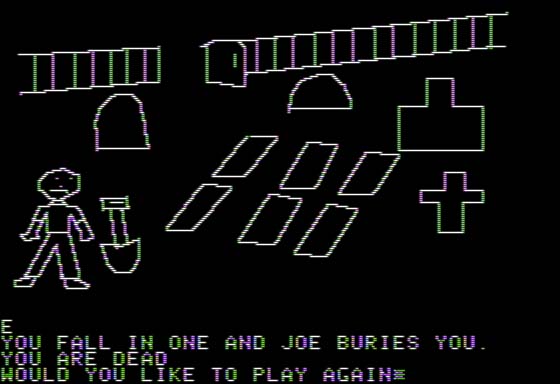The log of every single computer game I touch has been permanently retired.
But lately I’ve been playing some antique adventure games with a friend. They’re museum pieces, and I’m feeling inspired to give them a little attention here in a slightly different voice and format.
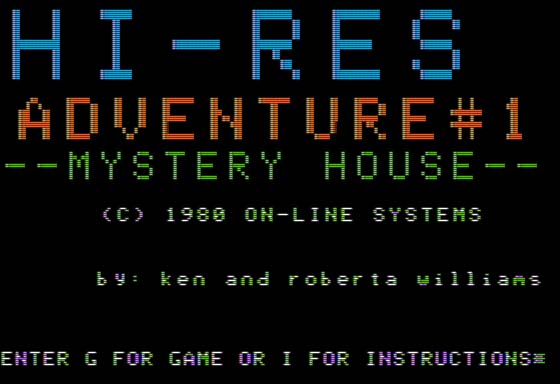
For years, our eyes were shut.
If we wanted to envision the gothic space inside the computer, all we had to go on was a mysterious whisper: YOU ARE STANDING AT THE END OF A ROAD.
Did we ever really trust that hissing, insinuating voice? Of course not. We knew we were blind and at the mercy of a trickster god. East was north and south was west; really we could be anywhere.
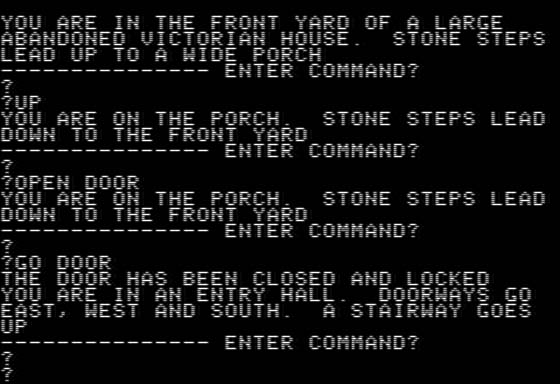
Then suddenly in 1980, a miracle. Our eyes open. As they adjust to the dim light, a picture comes into focus.
“Can you see anything?” “Yes, wonderful things.”
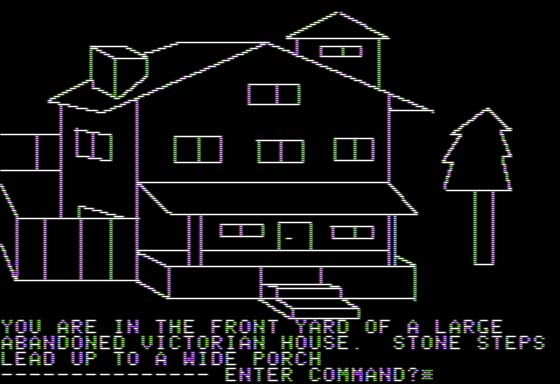
In the land of the blind, Ken and Roberta Williams are king.
At midnight, against pure blackboard darkness, a primitive line scratches out a world, as naive and as free as Harold and the Purple Crayon. The line mostly stays to its assigned task, but its power to create and destroy is absolute and untamed. Chaos is palpably close at hand. It always has been, but now we see its face.
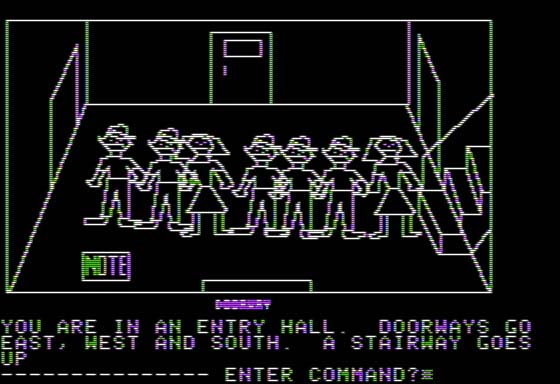
An etching plate, a negative.
Roberta Williams, would-be doyenne of adventure games, didn’t traffic in originality. Her creative process consisted entirely of remembering things she had encountered elsewhere. Maybe she didn’t know there was an alternative.
As its title promises, Mystery House is a witless concatenation of thirdhand clichés. Murders, and hidden jewels, and a graveyard, and the word “Victorian.” It has been plausibly speculated that Roberta got it all from an episode of Hart to Hart she had recently seen.
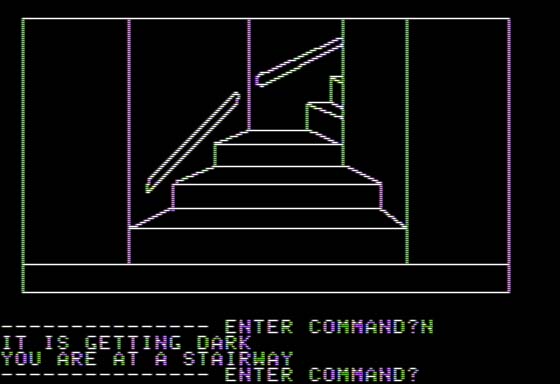
But the game, like so many games, gets away from its creators and speaks its own language, gnomic and foreboding. GO DOOR.
It turns out the beckoning depths of Colossal Cave can sometimes be a house. And a house can sometimes be a cave. Traversing it from foyer to attic is a quest. There’s a murmur of real meaning there, one that will echo in countless games to come: all those speleological “rooms” in Adventure were actually the rooms in our real lives. Not to mention the rooms within the self. All interiors are metaphors for one another.
And isn’t that what spooky mansion tropes are about in the first place? Here, reduced to henscratch, the clichés actually manage to speak. Are there secret passages hidden behind the furniture? Is someone else sneaking around in this house too? What’s that inscrutable shape in the corner? And, most importantly: what on earth are you supposed to do?
In the dark, who can say for certain?
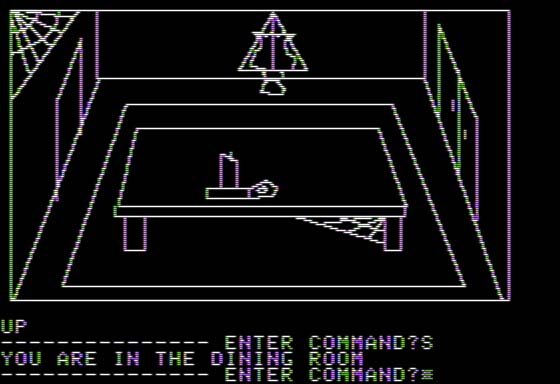
Every prompt in an adventure game is a locked door. The more asinine and unfair the game, the more ironclad the lock. And on the other side? In the sanctum of chaos? It’s a secret to everybody.
In its esoteric crudity, Mystery House remains ominous, even today. It resembles what it portrays. There’s power in that.
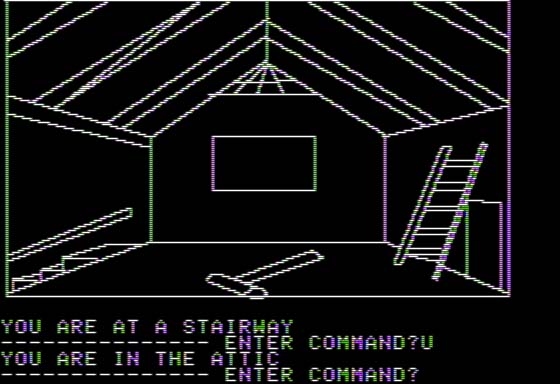
A computer is a mystery house, and if you dare venture into its spaces, you will find that they are strewn with the corpses of its victims. But there are also jewels hidden in the walls, somewhere.
